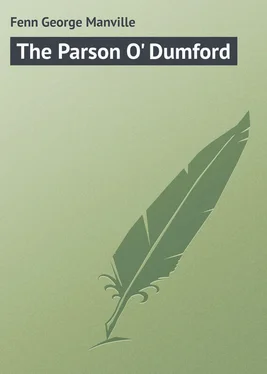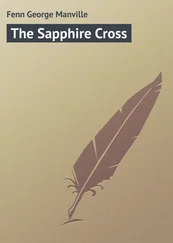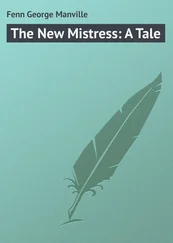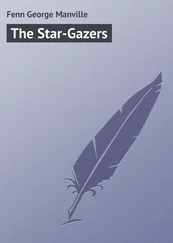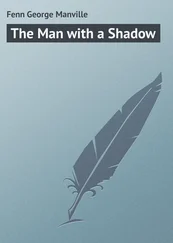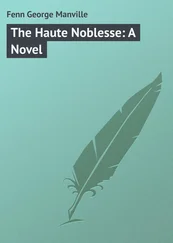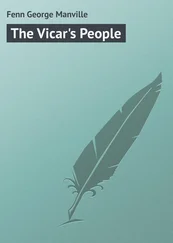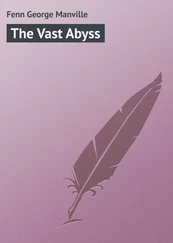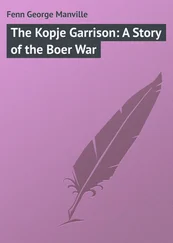George Fenn - The Parson O' Dumford
Здесь есть возможность читать онлайн «George Fenn - The Parson O' Dumford» — ознакомительный отрывок электронной книги совершенно бесплатно, а после прочтения отрывка купить полную версию. В некоторых случаях можно слушать аудио, скачать через торрент в формате fb2 и присутствует краткое содержание. ISBN: , Издательство: Иностранный паблик, Жанр: foreign_prose, на английском языке. Описание произведения, (предисловие) а так же отзывы посетителей доступны на портале библиотеки ЛибКат.
- Название:The Parson O' Dumford
- Автор:
- Издательство:Иностранный паблик
- Жанр:
- Год:неизвестен
- ISBN:http://www.gutenberg.org/ebooks/34141
- Рейтинг книги:5 / 5. Голосов: 1
-
Избранное:Добавить в избранное
- Отзывы:
-
Ваша оценка:
- 100
- 1
- 2
- 3
- 4
- 5
The Parson O' Dumford: краткое содержание, описание и аннотация
Предлагаем к чтению аннотацию, описание, краткое содержание или предисловие (зависит от того, что написал сам автор книги «The Parson O' Dumford»). Если вы не нашли необходимую информацию о книге — напишите в комментариях, мы постараемся отыскать её.
The Parson O' Dumford — читать онлайн ознакомительный отрывок
Ниже представлен текст книги, разбитый по страницам. Система сохранения места последней прочитанной страницы, позволяет с удобством читать онлайн бесплатно книгу «The Parson O' Dumford», без необходимости каждый раз заново искать на чём Вы остановились. Поставьте закладку, и сможете в любой момент перейти на страницу, на которой закончили чтение.
Интервал:
Закладка:
The Parson O' Dumford
Volume One – Chapter One.
Pleasant Receptions
“Ax.”
“I was asking, or axing, as you call it, my man. I said, Is that Dumford, down there in the valley?”
“And I said axe, or arks, as you call it, my man,” was the surly, defiant reply.
The last speaker looked up savagely from the block of stone on which he was seated, and the questioner looked down from where he stood on the rough track. There was a quiet, half-amused twinkle in his clear grey eyes, which did not quit his verbal opponent for an instant, as he remained gazing at him without speaking.
They were men of about the same age – eight-and-twenty or thirty – the one evidently a clergyman by his white tie, and the clerical cut of his clothes, though there was an easy dégagé look in the soft felt hat cocked a little on one side of his massive head – a head that seemed naturally to demand short crisp curly brown hair. The same free and easy air showed in the voluminous wrinkles of his grey tweed trousers; his thick square-toed rather dusty boots; and his gloveless hands, which were brown, thickly veined, and muscular. He had a small leather bag in one hand, a stout stick in the other, and it was evident that he had walked some distance over the hills, for the nearest town, in the direction he had come, was at least six miles away.
The seated man, who was smoking a very dirty and short clay pipe, was as broad-shouldered, as sturdy, and as well-knit; but while the one, in spite of a somewhat heavy build, was, so to speak, polished by exercise into grace; the other was rough and angular, and smirched as his countenance was by sweat and the grime of some manufacturing trade, he looked as brutal as his words.
“What are yow lookin’ at?” he suddenly growled menacingly.
“At yow,” said the clergyman, in the most unruffled way; and, letting his bag and stick fall in the ferns, he coolly seated himself on a second block of stone on the bright hill-side.
“Now look here,” exclaimed the workman, roughly, “I know what you’re after. You’re going to call me my friend, and finish off with giving me a track, and you may just save yerself the trouble, for it wean’t do.”
He knocked the ashes out of his pipe as he spoke, and looked menacing enough to do any amount of mischief to a man he did not like.
“You’re wrong,” said the traveller, coolly, as he rummaged in the pocket of his long black coat. “I’m going to have a pipe.”
He opened a case, took out a well-blackened meerschaum, scraped the ashes from its interior, filled it from a large india-rubber pouch which he then passed to the workman, before striking a match from a little brass box and beginning to smoke with his hands clasped round his knees.
“Try that tobacco,” he continued. “You’ll like it.”
The workman took the tobacco-pouch in an ill-used way, stared at it, stared at the stranger smoking so contentedly by him, frowned, muttered something uncommonly like an oath, and ended by beginning to fill his pipe.
“Don’t swear,” said the traveller, taking his pipe from his lips for a moment, but only to replace it, and puff away like a practised smoker.
“Shall if I like,” said the other, savagely. “What have yow got to do wi’ it?”
“Don’t,” said the traveller; “what’s the good? It’s weak and stupid. If you don’t like a man, hit him. Don’t swear.”
The workman stared as these strange doctrines were enunciated; then, after a moment’s hesitation, he finished filling his pipe, struck a match which refused to light, threw it down impatiently, tried another, and another, and another, with the same result, and then uttered a savage oath.
“At it again,” said the traveller, coolly, thrusting a hand into his pocket. “Why, what a dirty-mouthed fellow you are.”
“Yow wean’t be happy till I’ve made your mouth dirty,” said the workman, savagely; “and you’re going the gainest way to get it.”
“Nonsense!” said the traveller, coolly, “Why didn’t you ask me for a light?”
He handed his box of vesuvians, and it was taken in a snatchy way. One was lighted, and the few puffs of smoke which followed seemed to have a mollifying effect on the smoker, who confined himself to knitting his brows and staring hard at the stranger, who now took off his hat to let the fresh soft breeze blow over his hot forehead, while he gazed down at the little town, with its square-towered church nestling amidst a clump of elms, beyond which showed a great blank, many-windowed building, with tall chimney shafts, two or three of which were vomiting clouds of black smoke nowise to the advantage of the landscape.
“I thowt you was a parson,” said the young workman at last, in a growl a trifle less surly.
“Eh?” said the other, starting from a reverie, “parson? Yes, to be sure I am.”
“Methody?”
“No.”
“Ranter, p’raps?”
“Oh, no, only when I get a little warm.”
“What are you, then?”
“Well, first of all,” said the traveller, quietly, “you’d better answer my question. Is that Dumford?”
The workman hesitated and frowned. It seemed like giving in – being defeated – to answer now, but the clear grey eyes were fixed upon him in a way that seemed to influence his very being, and he said at last, gruffly,
“Well, yes, it is Doomford; and what if it is?”
“Oh, only that I’m the new vicar.”
The workman puffed rapidly at his pipe, his face assuming a look of dislike, and at last he ejaculated, “Ho!”
“Like that tobacco?” said the new vicar, quietly.
There was a pause, during which the workman seemed to be debating within himself whether he should answer or not. At last he condescended to reply, “’taint bad.”
“No; it’s really good. I always get the best.”
The last speaker took in at a glance what was going on in his companion’s breast, and that was a fight between independent defiance and curiosity, but he seemed not to notice it.
“Give him time,” he said to himself; and he smoked on, amused at the fellow’s rough independence. He had been told that he would find Dumford a strange place, with a rough set of people; but nothing daunted, he had accepted the living, and had made up his mind how to act. At last the workman spoke:
“I never see a parson smoke afore!”
“Didn’t you? Oh, I like a pipe.”
“Ain’t it wicked?” said the other, with a grin.
“Wicked? Why should it be? I see nothing wrong in it, or I should not do it.”
There was another pause, during which pipes were refilled and lighted once more.
“Ever drink beer?” said the workman at last.
“Beer? By Samson!” exclaimed the new vicar, “how I should like a good draught now, my man. I’m very thirsty.”
“Then there ain’t none nigher than the Bull, an that’s two mile away. There’s plenty o’ watter.”
“Where?”
“Round the corner in the beck.”
A short nod accompanied this, and the vicar rose.
“Then we’ll have a drop of water – qualified,” he said, taking a flask from his pocket. “Scotch whisky,” he added, as he saw the stare directed at the little flask, whose top he was unscrewing.
A dozen paces down the path, hidden by some rocks, ran the source of a tiny rivulet or beck, with water like crystal, and filling the cup he took from his flask, the vicar qualified it with whisky, handed it to his rough companion, and then drank a draught himself with a sigh of relief.
“I’ve walked across the hills from Churley,” he said, as they re-seated themselves. “I wanted to see what the country was like.”
“Ho!” said the workman. “Say, you ain’t like the owd parson.”
Читать дальшеИнтервал:
Закладка:
Похожие книги на «The Parson O' Dumford»
Представляем Вашему вниманию похожие книги на «The Parson O' Dumford» списком для выбора. Мы отобрали схожую по названию и смыслу литературу в надежде предоставить читателям больше вариантов отыскать новые, интересные, ещё непрочитанные произведения.
Обсуждение, отзывы о книге «The Parson O' Dumford» и просто собственные мнения читателей. Оставьте ваши комментарии, напишите, что Вы думаете о произведении, его смысле или главных героях. Укажите что конкретно понравилось, а что нет, и почему Вы так считаете.
